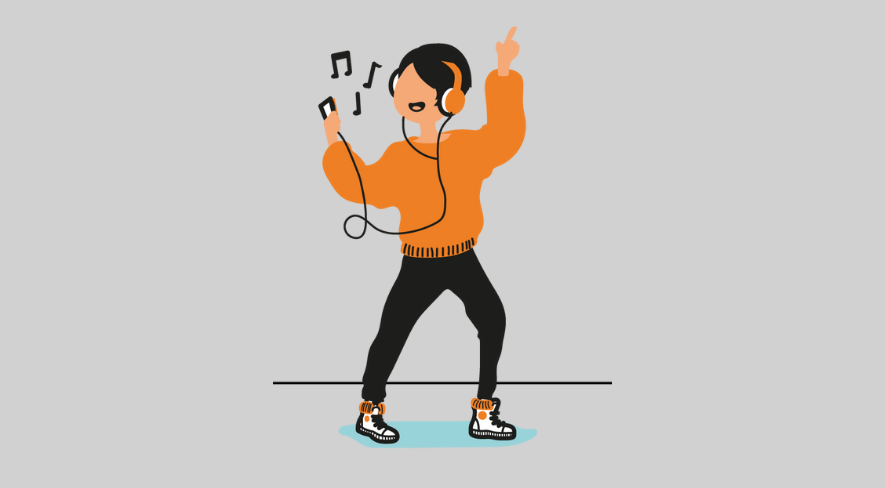“When words fail, music speaks,” said Danish author Hans Christian Andersen. Isn’t it strange that someone so loved for his writing would say this? There are several examples from everyday life that demonstrate this experience. During the COVID-19 lockdown, people worldwide found that music helped them escape, relax, raise their mood, and feel less lonely.
Some consider music as a sacred lore, calling it the fifth Veda (Panchama-Veda). In contrast, others provide ample evidence of the beneficial impact of music on the brain. There is also increasingly robust literature of research findings that support the developmental importance of music in adolescence, especially when combined with the concept of flow. Evidence suggests that we must strive to create learning spaces conducive to flow experiences.
When in “flow”, one can modulate the variability of the impact of music. The flow experience is a state of complete involvement in an activity that requires absolute concentration. (Csikszentmihalyi, 1999).
Flow can support adolescents’ sense of agency. Here, agency refers to a person’s ability to influence their functioning and environment. It directly links to one’s self-efficacy and wellbeing. In youth, external demands often challenge this agency as one’s self-image is at a critical junction. The occurrence of flow in daily life can make teenagers much happier, producing favourable outcomes in improved concentration, intrinsic motivation, optimism, cheerfulness, sociability, and commitment to education.
According to a study by the John Hopkins University School of Education, integrating music in classrooms can help with the three A’s of Attention, Attitude, and Atmosphere. And this is true not just for classical music, the ragas, Mozart and Baroque, but also for rock music and other new-age genres. Rock music can be instrumental in setting a learning rhythm, increasing learners’ attention during sound breaks, and setting the tempo during exercises and other physical activities.
Parents Can Help
Nada Yoga and Raga Chikitsa form the backbone of the Indian music therapy system. Venting grief through composing a song is a regular tool used in Western Music Therapy. However, even non-musical parents with no access to a music therapist or knowledge of the intricacies of a raga can help their child with just a few basic concepts. Begin working with rhythm and the pentatonic scale.
Parents have a critical role in assisting their growing adolescents in developing socially. Our conversations with parents reveal that understanding their children’s perspectives needs to be a priority.
“My son is autistic, but he is under the high functioning category, so he is almost normal. He also has hyperlexia. Without anyone’s help, just my insistence and belief, he wrote the lyrics, sang, played the guitar, and added the drum effect (with a few taps on the table). He used to listen to Eminem, an American rapper, which bothered us a lot as parents until we read about Eminem and his reason for composing such songs. My son’s debut composition is proof that any parent who is willing to put in the effort and come to the level of understanding of their teen can help,” says Seetha Gopalakrishnan.
The takeaway here is that spending time with teenagers, accepting their concerns, and encouraging them to take on new challenges can go a long way in forging a supportive and loving relationship. Finding ways to spend time together, connecting over music can offer valuable starting points.
Music is a culmination of sounds whose vibrations create a specific impact on one’s brain and hence, emotions. Irrespective of the form or genre of music, it can help teenagers express, find solace, and nurture their social development. Parents must understand this and use affirmations that teach children to embrace the ‘self’ and not lose sight of it in group relations.
[This article features inputs from Seetha Gopalakrishnan, a career tax and legal consultant to multinationals. She has worked with international financial institutions Bank of Thailand, Thailand’s Ministry of Energy, Asian Development Bank, and the World Bank. She has funded a variety of musical instruments and conducted a ten-day residential music workshop for 60 HIV-infected adolescents at Snehagram, Krishnagiri, India, along with her son and daughter. From 2016 to 2017, she also provided music lessons and related assistance for seniors in a retirement home in Coimbatore. Please write to us at namaste@pluskul.com for questions.]

